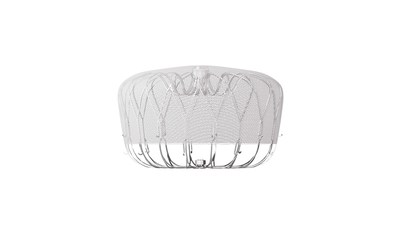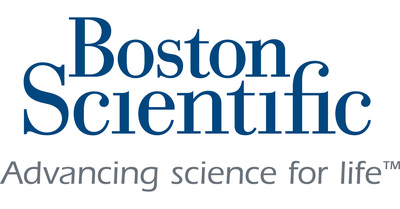WATCHMAN FLX now the only LAAC technology in the United States that allows for either DAPT or OAC immediately following implantation
MARLBOROUGH, Mass., Sept. 6, 2022 /PRNewswire/ -- Boston Scientific Corporation (NYSE: BSX) has received U.S. Food and Drug Administration (FDA) approval to expand the instructions for use labeling for the current-generation WATCHMAN FLX™ Left Atrial Appendage Closure (LAAC) Device to include a 45-day dual anti-platelet therapy (DAPT) option as an alternative to 45-day oral anticoagulation (OAC) plus aspirin for post-procedural treatment of patients with non-valvular atrial fibrillation (NVAF).
"This revised labeling provides physicians more flexibility to exercise their clinical judgment based on individual patient characteristics to determine the most appropriate post-procedural antithrombotic medication regimen," said Dr. Ian Meredith, global chief medical officer, Boston Scientific. "This significant step forward is supported by the robust safety and efficacy profile demonstrated by both the legacy WATCHMAN and current-generation WATCHMAN FLX technologies."
Clinical evidence submitted to the FDA to support the labeling update included analyses spanning approximately 8,300 patients from the Left Atrial Appendage Occlusion Registry (LAAO Registry) within the American College of Cardiology Foundation's (ACCF) National Cardiovascular Data Registry (NCDR). The data was submitted to the FDA to support the safety and efficacy of DAPT as a post-procedural antithrombotic regimen in patients with NVAF who may have a reason for seeking an alternative to OAC.
The labeling in Europe has included the choice of either OAC or a DAPT post-procedural drug regimen for WATCHMAN technology since 2017.
Additional Recent Clinical Data Supporting the WATCHMAN FLX Device
Recently announced real-world data for the WATCHMAN FLX device include the results of an analysis of more than 17,000 patients from the NCDR-LAAO Registry that demonstrated no significant difference in rates of major adverse events at 45 days post implant, whether patients were discharged from the hospital on DAPT, a direct OAC and aspirin, or warfarin and aspirin.
Additionally, recently presented data from the SURPASS analysis of more than 16,000 patients from the NCDR-LAAO Registry demonstrated low rates of adverse events and peri-device leak through 45 days post implant, and, in the investigator-led SEAL-FLX study – the first study exclusively comparing the WATCHMAN FLX device vs. the Amplatzer™ Amulet™ device – there was a significantly higher rate of complete occlusion of the left atrial appendage at eight weeks with the WATCHMAN FLX technology compared to the Amulet device (72.6% vs. 30.5%), as evaluated by contrast enhanced cardiac computed tomography (CT) imaging. This single-center retrospective study of 300 patients also demonstrated that the median peri-device leak area (residual flow around the device from the LAA) was significantly smaller with the WATCHMAN FLX device.
Ongoing studies with the WATCHMAN FLX device include the CHAMPION-AF and OPTION clinical trials to evaluate use of the device for broader patient populations with NVAF.
For more information on the WATCHMAN FLX device, visit www.watchman.com/implanter.
About Boston Scientific
Boston Scientific transforms lives through innovative medical solutions that improve the health of patients around the world. As a global medical technology leader for more than 40 years, we advance science for life by providing a broad range of high performance solutions that address unmet patient needs and reduce the cost of healthcare. For more information, visit www.bostonscientific.com and connect on Twitter and Facebook.
Cautionary Statement Regarding Forward-Looking Statements
This press release contains forward-looking statements within the meaning of Section 27A of the Securities Act of 1933 and Section 21E of the Securities Exchange Act of 1934. Forward-looking statements may be identified by words like "anticipate," "expect," "project," "believe," "plan," "estimate," "intend" and similar words. These forward-looking statements are based on our beliefs, assumptions and estimates using information available to us at the time and are not intended to be guarantees of future events or performance. These forward-looking statements include, among other things, statements regarding our business plans, clinical trials and product performance and impact. If our underlying assumptions turn out to be incorrect, or if certain risks or uncertainties materialize, actual results could vary materially from the expectations and projections expressed or implied by our forward-looking statements. These factors, in some cases, have affected and in the future (together with other factors) could affect our ability to implement our business strategy and may cause actual results to differ materially from those contemplated by the statements expressed in this press release. As a result, readers are cautioned not to place undue reliance on any of our forward-looking statements.
Factors that may cause such differences include, among other things: future economic, competitive, reimbursement and regulatory conditions; new product introductions; demographic trends; intellectual property; litigation; financial market conditions; and future business decisions made by us and our competitors. All of these factors are difficult or impossible to predict accurately and many of them are beyond our control. For a further list and description of these and other important risks and uncertainties that may affect our future operations, see Part I, Item 1A – Risk Factors in our most recent Annual Report on Form 10-K filed with the Securities and Exchange Commission, which we may update in Part II, Item 1A – Risk Factors in Quarterly Reports on Form 10-Q we have filed or will file hereafter. We disclaim any intention or obligation to publicly update or revise any forward-looking statements to reflect any change in our expectations or in events, conditions or circumstances on which those expectations may be based, or that may affect the likelihood that actual results will differ from those contained in the forward-looking statements. This cautionary statement is applicable to all forward-looking statements contained in this document.
CONTACTS:
Angela Mineo
Media Relations
(763) 955-8325 (office)
Angela.mineo@bsci.com
Lauren Tengler
Investor Relations
(508) 683-4479
BSXInvestorRelations@bsci.com
SOURCE Boston Scientific Corporation



